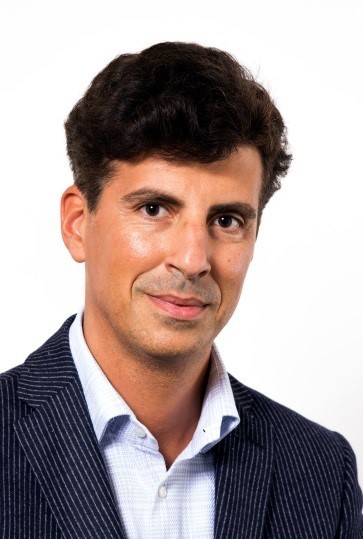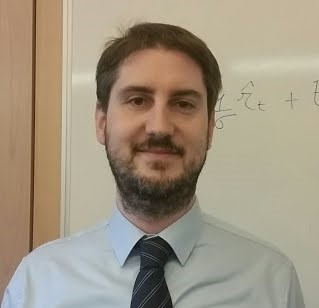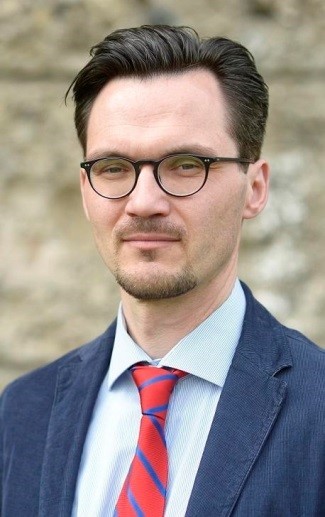Week 1
 Fabio Canova is a professor of Macroeconomics at the Norwegian Business School, the director of Training of the Florence School of Banking and Finance, Research associate with the Centre for Applied Macroeconomics and Petroleum Studies and the CEPR. He is also program director of the Budapest School of Central Bank Studies, member of the scientific committee of the Euro Area Business Cycle network, of ESOBE, and editor of the Journal of Applied Econometrics.
Fabio Canova is a professor of Macroeconomics at the Norwegian Business School, the director of Training of the Florence School of Banking and Finance, Research associate with the Centre for Applied Macroeconomics and Petroleum Studies and the CEPR. He is also program director of the Budapest School of Central Bank Studies, member of the scientific committee of the Euro Area Business Cycle network, of ESOBE, and editor of the Journal of Applied Econometrics.
In the past he has held the Pierre Werner chair in Monetary Union at the Robert Schumann Center for Advanced Studues (2012-2014), the ICREA Research Professorship at Universitat Pompeu Fabra (2006-2012) and is has been Professor of Econometrics at the European University Institute (2011-2014) and Chair in Monetary Economics and the University of Bern (2008). He has been recently awarded a honoray professorship from Henin University in China.
In the recent past he has been program committee member of the meetings of the International Association of Applied Econometrics (2014-2017), chair for the European Meetings of the Econometric Society 2014, a panelist of ANVUR in 2013, coeditor of the Journal of the European Economic Association from 2008 to 2013 and a referee for ERC, NSF, ESRC research proposals.
Has has taught classes in numerous universities and given professional courses at the Bank of England, Riksbank, Bank of Italy, Bundesbank, ECB, Bank of Spain, Bank of Portugal, Bank of Hungary, Bank of Argentina, Banco do Brazil, Banco de Peru, South African Central Bank, Central Bank of Indonesia, Swiss National Bank, Banco de Mexico, Banco de La Republica de Colombia, Banco de Venezuela, Bank of Israel, Monetary and Banking Institute of Iran, Waifem, Central Bank of Chile, Central Bank of Korea, Bank of Albania, at the EABCN, at the Central Bank program in Genzersee, the IMF, the EU commission, the UK Foreign Office and UK treasury, among others.
He has held consultancy positions with the Bank of England, the ECB, the Bank of Italy, the Bank of Spain and the IMF. He has published over 85 articles in international journals and his graduate textbook, Methods for Applied Macroeconomic Research, has been published in 2007 by Princeton University Press and translated in Chinese in 2010.
website: http://apps.eui.eu/Personal/Canova/
Week 2
 Francesco Furlanetto works as Senior Researcher in the Research Department at Norges Bank. He obtained his Phd from the University of Lausanne and spend time at University Pompeu Fabra in Barcelona as post-doctoral student. His research focuses on the sources of business cycle fluctuations, using both theoretical and empirical macroeconomic models. He published several articles on topics like the importance of mismatch to explain the increase of unemployment in the US during the Great Recession, the role of financial factors in driving economic fluctuations, the role of labor supply factors in accounting for the decline in the labor force participation rate in the US and the use of non-separable preferences to generate co-movement of macroeconomic variables in response to demand shocks. His more recent research deals with the role of monetary policy in models with financial frictions and the impact of immigration on the macroeconomy.
Francesco Furlanetto works as Senior Researcher in the Research Department at Norges Bank. He obtained his Phd from the University of Lausanne and spend time at University Pompeu Fabra in Barcelona as post-doctoral student. His research focuses on the sources of business cycle fluctuations, using both theoretical and empirical macroeconomic models. He published several articles on topics like the importance of mismatch to explain the increase of unemployment in the US during the Great Recession, the role of financial factors in driving economic fluctuations, the role of labor supply factors in accounting for the decline in the labor force participation rate in the US and the use of non-separable preferences to generate co-movement of macroeconomic variables in response to demand shocks. His more recent research deals with the role of monetary policy in models with financial frictions and the impact of immigration on the macroeconomy.
website: http://www.norges-bank.no/en/about/research/economists/furlanetto-francesco/
 Paolo Gelain has been senior advisor in the modelling group of Norges Bank from 2010 to 2017. From September 2016 to December 2017 he has been ESCB/IO economist at the European Central Bank (Financial Research Division). From 2018 he will join the research department of the Federal Reserve Bank of Cleveland as a research economist.
Paolo Gelain has been senior advisor in the modelling group of Norges Bank from 2010 to 2017. From September 2016 to December 2017 he has been ESCB/IO economist at the European Central Bank (Financial Research Division). From 2018 he will join the research department of the Federal Reserve Bank of Cleveland as a research economist.
He obtained his PhD from the University of Pisa (Italy) in May 2008 defending a thesis on the monetary policy analysis of the Euro Area using a DSGE model incorporating credit frictions. He previously studied at The University of York (UK) where he got a Master of Science in Economics (with distinction). He was a visiting researcher (June-Sept. 2008 and Feb-April 2009) at the Central Bank of Estonia and he was an intern at the European Central Bank in the period Oct.-Dec. 2008 (Monetary Policy Stance Division) and in the period May-July 2009 (Capital Markets and Financial Structure Division). Before joining Norges Bank, he spent one year as a May-Wong-Smith post-doctoral research fellow at the University of St. Andrews (UK) and he became external affiliate of the Centre for International Macroeconomic Studies (CIMS) - University of Surrey (UK).
Week 3
 Prof. Dr. Mathias Trabandt joined the School of Business and Economics at Freie Universität Berlin in August 2015 and holds the Chair of Macroeconomics. His research and teaching interests focus on macroeconomics, monetary economics, public economics, labor economics, international macroeconomics, financial frictions and applied econometrics. Prof. Dr. Trabandt’s research has been published in e.g. the American Economic Journal: Macroeconomics, Econometrica, the Journal of Economic Dynamics and Control, the Journal of Monetary Economics, the European Economic Review, the American Economic Review (Papers and Proceedings) and the Handbook of Monetary Economics.
Prof. Dr. Mathias Trabandt joined the School of Business and Economics at Freie Universität Berlin in August 2015 and holds the Chair of Macroeconomics. His research and teaching interests focus on macroeconomics, monetary economics, public economics, labor economics, international macroeconomics, financial frictions and applied econometrics. Prof. Dr. Trabandt’s research has been published in e.g. the American Economic Journal: Macroeconomics, Econometrica, the Journal of Economic Dynamics and Control, the Journal of Monetary Economics, the European Economic Review, the American Economic Review (Papers and Proceedings) and the Handbook of Monetary Economics.
Before joining the School of Business and Economics, he was Chief of the Global Modeling Studies Section‘ at the International Finance Division of the Federal Reserve Board of Governors in Washington D.C. Earlier in his career, Prof. Dr. Trabandt also held positions as an economist at the European Central Bank and Deutsche Bundesbank in Frankfurt and at Sveriges Riksbank in Stockholm. Prof. Dr. Trabandt received his Ph.D. in economics from Humboldt University Berlin.
website: https://sites.google.com/site/mathiastrabandt/
Week 4
 Dimitris Korobilis is a Professor of Finance at the University of Essex Business School and a senior fellow of the Rimini Center for Economic Analysis. He works in high-dimensional inference in econometrics with emphasis on time-series models for macroeconomics and finance. He has wide teaching experience, having delivered various courses both at the University, central banks and government. At the University of Essex is teaching the course “Data Analytics in Finance”, and he has taught at the Deutsche Bundesbank specialized courses on estimation and inference in high-dimensional vector autoregressions for policy evaluation. His work has appeared in Journal of Econometrics, International Economic Review and European Economic Review.
Dimitris Korobilis is a Professor of Finance at the University of Essex Business School and a senior fellow of the Rimini Center for Economic Analysis. He works in high-dimensional inference in econometrics with emphasis on time-series models for macroeconomics and finance. He has wide teaching experience, having delivered various courses both at the University, central banks and government. At the University of Essex is teaching the course “Data Analytics in Finance”, and he has taught at the Deutsche Bundesbank specialized courses on estimation and inference in high-dimensional vector autoregressions for policy evaluation. His work has appeared in Journal of Econometrics, International Economic Review and European Economic Review.